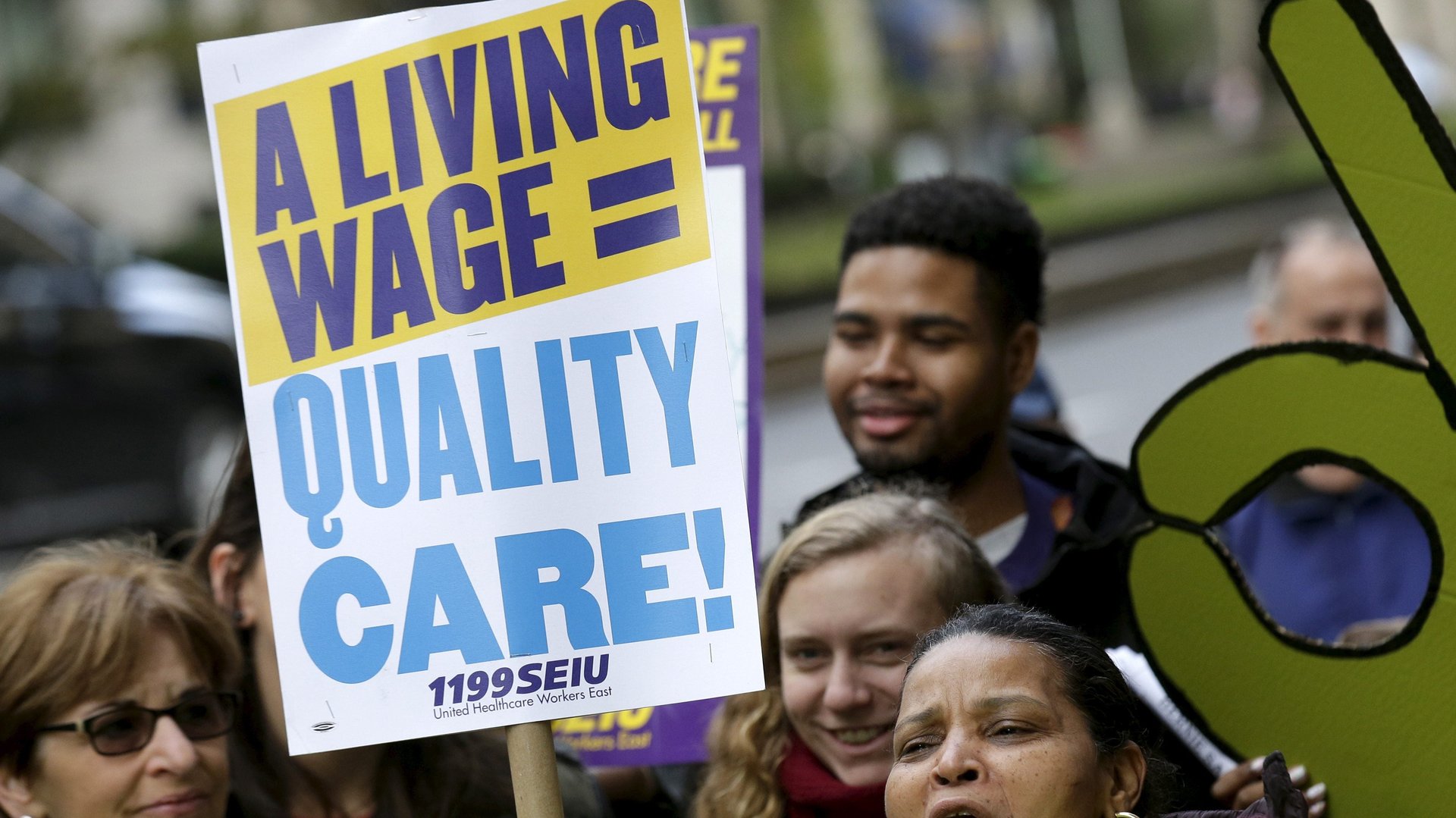A new study finds business school mainly teaches managers to keep wages low
As it turns out, going to business school may not be all that good for business.


As it turns out, going to business school may not be all that good for business.
A new study from the National Bureau of Economic Research released March 28 revealed that managers with a business degree are not significantly better at running a company than those without one. They were, however, less prone to raise wages.
“If you talk to business schools about our findings, a lot of them don’t find it surprising because part of what they teach is to maximize profits,” said Alex He, a finance professor at the University of Maryland and one of the study’s authors. “We’re just documenting that the kind of profit maximization that they do has these costs on labor.”
The study, which is based on data from US and Danish companies, tracked firms that replaced CEOs without business degrees with business school graduates, including changes in wages, sales, and profit.
The authors, which also include economists from MIT and the University of Copenhagen, found that sales growth didn’t improve when the business-trained CEOs or managers took over in either country. Meanwhile, wage growth declined by 6% on average in the US and by 3% in Denmark. The pay cuts reduced expenses and increased profits, boosting stock prices. But they also resulted in highly skilled workers choosing to find a new job.
“Some of the more high-skilled and more valuable workers leave the firm, and that may have some long-run costs for the firm,” said He.
More CEOs are getting MBAs
The results are particularly relevant for the US, where the share of companies with managers who went to business school has been steadily growing. The economists found that out of the 9,000 US firms they studied, the number with business managers at the helm increased from 26% in 1980 to 43% in 2020, with the majority of this increase coming from a proliferation of MBAs.
During that period, the share of company earnings going to workers dropped.
The study’s findings may be another indicator of American economist Milton Friedman’s effect on the business world, the authors noted. Under the Friedman doctrine, companies’ only social responsibility is “to use it resources and engage in activities designed to increase its profits so long as it stays within the rules of the game,” as its creator wrote in 1970.
Over the longer run, it’s difficult to say whether applying that maxim is better for each individual firm, “but for society in general it’s probably not a huge improvement in welfare,” He said.